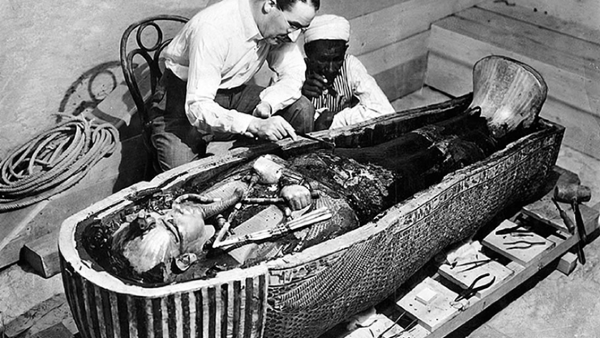10 Things That Happen To Your Body After You Die
1. Burial, Cremation, Mummification

For all our faults, we're a sophisticated bunch and we don't often leave our dead exposed to the elements (well, unless it's for science or a sky burial), we tend to bury them or burn them.
When you cremate a body, the idea is to reduce the whole thing, coffin and all, to ashes. This is easier said than done as the body burns at an incredibly high temperature, well over 1000°C. A normal sized person will take about 90 minutes to burn, whereas people with a lot of body fat can take hours and it's actually better to be cremated in a traditional wooden coffin - rather than an "environmentally friendly" wicker or cardboard one - because it will aid the burning process and require less energy.
The ashes are then crushed to get rid of large bone fragments (as that can throw a distressing spanner in the works if the family try to scatter them) and any metal implants like false hips are removed and stored or recycled.
Bodies are required to be buried at least three feet down, but in the case of a shared grave, the one at the bottom could be up to ten feet below. Shared graves are at a higher risk of collapse as each of them decomposes and buckles under the weight of all the others.
The type of soil you are buried in will have an impact on how you decompose. Heavy clay soil will prevent oxygen reaching you and slow the process, whereas light, crumbly soil will be quicker. It usually takes about 10-15 years.
In very hot, dry conditions, the bacteria will be unable to break down the body tissues and it will simply dehydrate instead. When the Ancient Egyptians used to bury their dead straight into the hot desert sand, they were preserved far more effectively that in the cold tombs of the pyramids, which is why they invented embalming in the first place.
Ultimately, all bodies break down, decay and return their energy and nutrients back to nature. You were only really borrowing them in the first place after all.
Love all things sciencey? Like us on Facebook or follow us on Twitter for all the latest updates from What Culture Science.